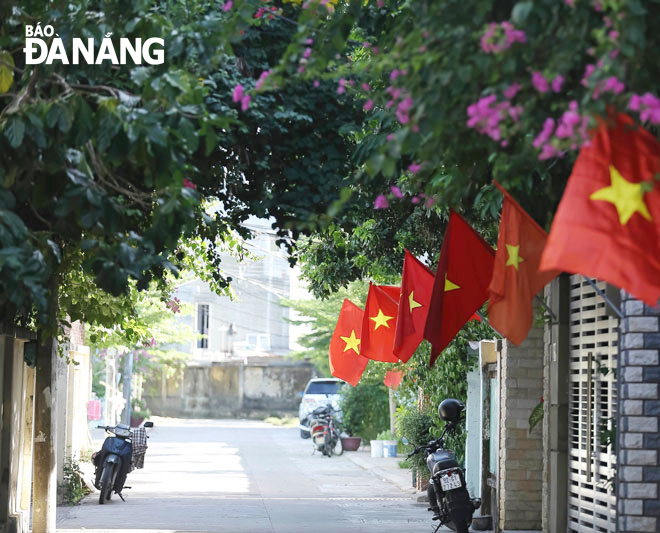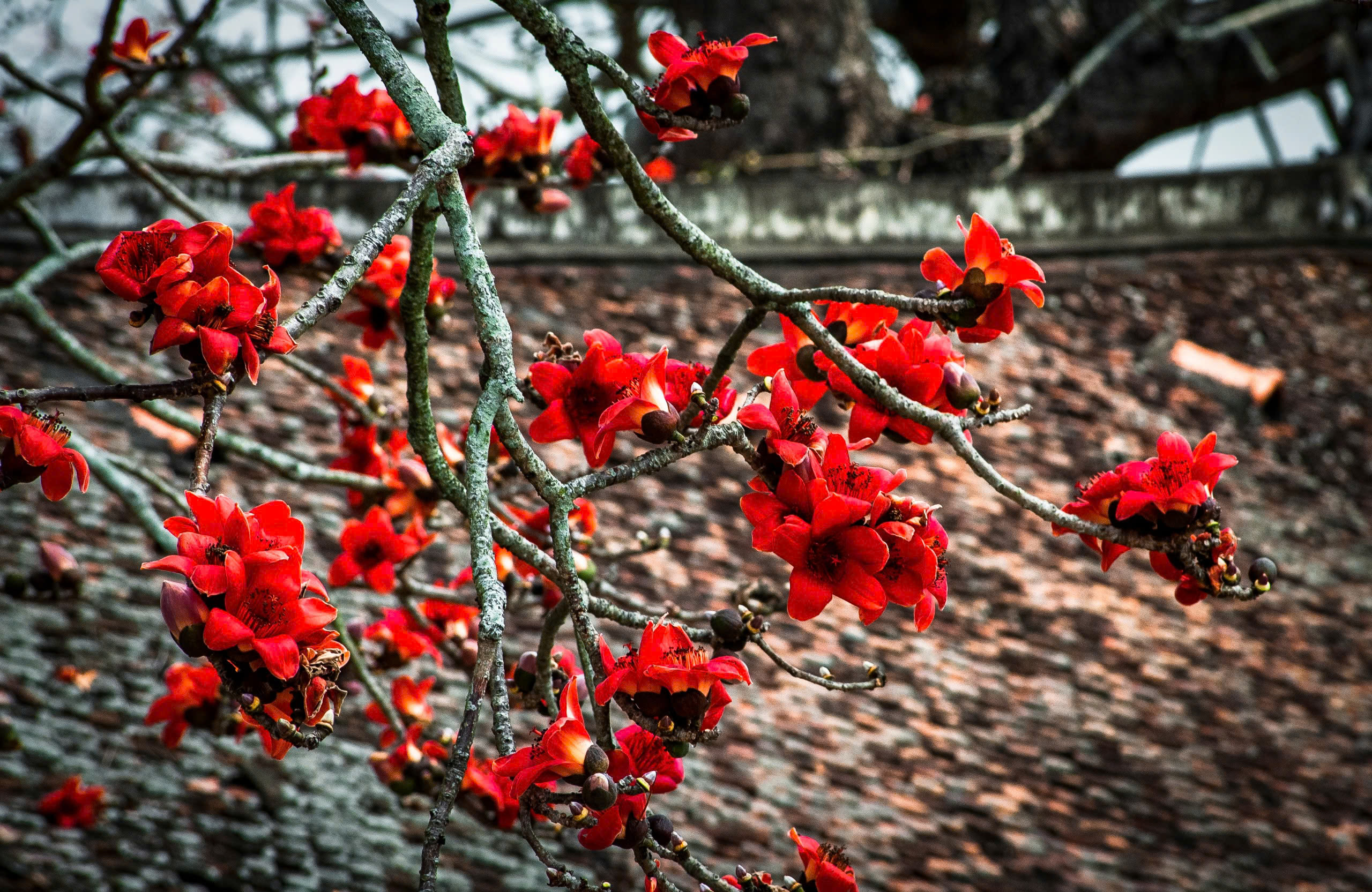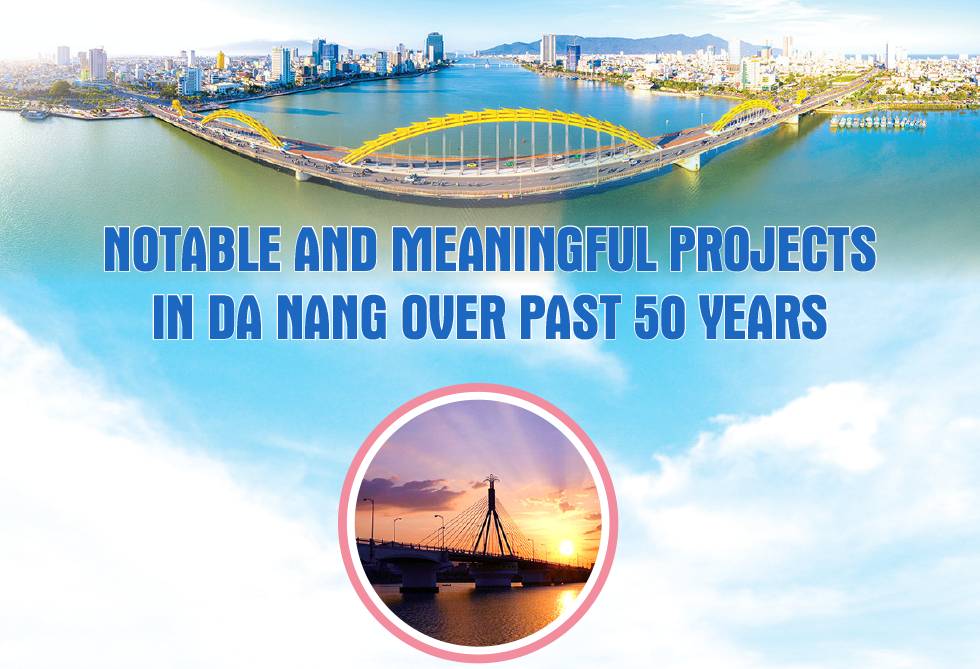Green wishes for future from Da Nang's economy
Being the first city in Viet Nam to implement a project to turn itself into an eco-city, Da Nang is expected to become a green city and make it more sustainable by promoting the development of green economy, and promoting a circular economy, as well as living in harmony with nature.
 |
| A small alley in Da Nang covered with many trees. Photo: TRAN ANH DUONG |
Making the city greener through raising enviromental awareness among local residents
Ms. Trinh Thi Hong was once employed, had no formal training in biotechnology, but she managed to develop a method for turning organic waste into detergents and soaps. A combined total of 400 underprivileged women in Da Nang get jobs because of her strategy as well.
By addressing waste problems and boosting women’s economic power, Ms. Hong’s circular economy approach has helped. She produces a variety of goods, including shampoo, hand sanitizer, dishwashing liquid, washing liquid, home cleaning liquid, and others, all of which are created entirely from organic waste, such as unharmed fruits, vegetables, and plants from nearby households.
It took her six years to successfully find a way to turn food waste into cleaning products. Her business transforms 109 tons of waste into 51,000 liters of product monthly, and employs more than 400 women in Da Nang.
She is now the Director of the Minh Hong Biology Company. She confided: "A few years ago, a company wanted to buy the rights to my business and its secret formula at a price of VND 5 billion, but I did not sell it because if I did so, hundreds of poor women would lose a monthly income of about VND 5 million from my company while my company’s collection and recycling lines of over 100,000 kilograms of organic waste per month might stop, which will be a pity."
Ms. Hong's circular economy model not only brings economic value to the city, but also becomes an inspirational story about perseverance and determination to turn waste into valuable resource.
Mr. Dang Quang Vinh, the Deputy Director of the municipal Department of Natural Resources and Environment, said that the city is focusing on investing and perfecting its technical infrastructure for solid waste collection and treatment, and waste classification at source. Included are increasing renewable energy production, and encouraging the development of circular business models.
“Each individual in Da Nang should have a part to play in promoting the development of green economy in order to make the city greener in the future. Therefore, we encourage and call on local people to join hands with us in making our city a green and clean city, as well as living in harmony with nature, and helping our city become an eco-city, ", Mr. Vinh hoped.
Promoting a greener and cleaner economy
Mr. Ha Ngoc Thong, the Director of the Tan Long Paper Packaging Company located in Hoa Khanh Industrial Park, said that he and members of the board of directors had thorough discussions at many meetings before deciding to move their business towards a circular economy as they predicted the initial difficulty of their company in applying this new economic model, including a decrease in profits, affecting the lives of their employees.
“After nearly 5 years of moving our business towards a circular economy, as well as using technology in manufacturing, what I like most is philosophy of waste as a resource. Currently, our company daily produces about 70 tons of finished paper, but only generates 1.5 tons of waste, mainly reusable tape," Mr. Thong remarked.
During his company’s process of using renewable and recycled energy sources in production, Mr. Thong hopes that Da Nang will soon complete its legal framework for the formation and development of a circular economy model associated with the production process and the responsibilities of all economic sectors. On the other hand, apart from encouraging businesses to go green, the national government should raise taxes on production establishments and businesses that use non-recyclable materials, as well as impose a carbon tax on those who are intensive users of fossil fuels in a bid to reduce their carbon footprint and impacts on the environment, Mr. Thong suggested.
Also according to Mr. Thong, a successful transition to a circular economy requires action in both producers and consumers as green consumption or sustainable consumption is an umbrella term that brings together a number of key issues, such as meeting needs, enhancing the quality of life, improving resource efficiency, increasing the use of renewable energy sources, minimizing waste, taking a life cycle perspective and taking into account the equity dimension.
Da Nang People's Committee Chairman Le Trung Chinh affirmed that Da Nang is on track to achieve its goal of becoming a circular city by 2045. The city has moved in a positive direction over the past 5 years as it has enjoyed benefits from hundreds of "Cleaner production" solutions developed by local businesses to help save nearly VND 15 billion each year, reduce about 50,000m3 of wastewater and over 5,000 tons of CO2.
The above-mentioned positive results have mainly attributed to the city’s efforts in boosting cooperation with international originations in an attempt to receive their support and funds for the city’s environmental projects. In particular, in 2022, Da Nang and iDE Viet Nam inked a cooperation agreement on implementing the DMDP project “Creating a Sustainable Circular Economy for Plastic Waste in Viet Nam” funded by the Danish International Development Agency (DANIDA) at a total budget of VND 34.57 billion, during the 2022 -2024 period.
The project, led by a consortium consisting of iDE, Oceanworks and Evergreen Social Ventures, seeks to develop plastic waste recycling as a profitable venture and provide waste pickers with a living income. Furthermore, the project will reduce the flow of plastic waste into natural environments in coastal cities of Viet Nam.
Working closely with the Vietnamese government, iDE has been using a market-based approach to increase the incomes of the poor since 1991, addressing agricultural challenges as well as expanding markets for sanitation.
In its efforts to boost environmental cooperation with such localities worldwide as the cities of Sweden’s Boras, Japan’s Yokohama, and South Korea’s Daegu, Da Nang has done well in surveying and evaluating the current situation of waste collection and recycling facilities, as well as facilitating their participation and engagement in the city’s plastics supply chain. Moreover, the city has yielded positive outcomes in environmental protection thanks to its effective policies and appropriate measurements. These factors help the city make it greener, but each citizen, each group, each business and authorities at local level must take action to make their city greener, more beautiful and more sustainable.
Reporting by HUYNH LE – Translating by H.L








